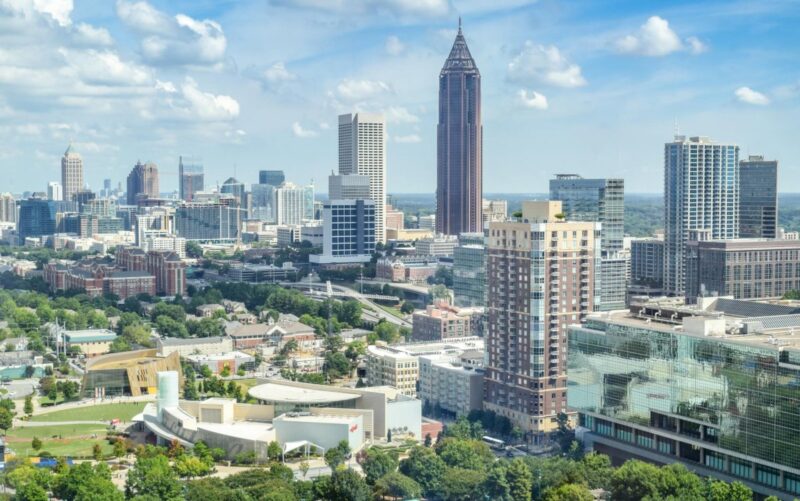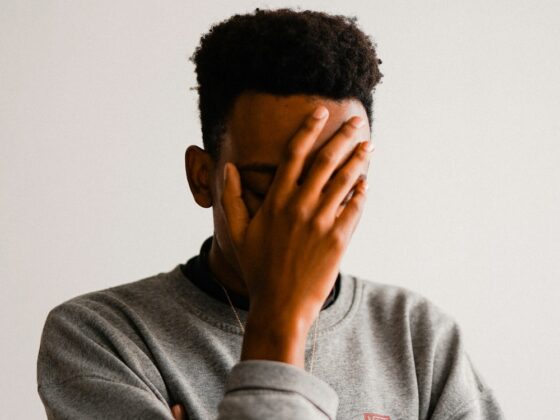If you have ever asked yourself why Black people gravitate to Atlanta, the answer lies in an intimate and deep rooted history. Atlanta is not just a city, this is a movement. For decades, this southern hub has drawn dreamers, builders and creatives who want more than just a place to live; they want a place where they can grow unapologetically.
Atlanta offers Black excellence, historical importance, economic opportunity and a unique combination of cultural energy that makes it opposite to the US elsewhere.
A City Built On Heritage
The roots of Atlanta go deep in Black history. It was the birthplace of Dr. Martin Luther King Jr. and home to pivotal civil rights organizing. Roads, churches and neighborhoods still take the echoes of leaders who tirelessly struggled for freedom and equality.
This heritage produces more than just apathy, it gives Black inhabitants a sense of pride and belonging. In Atlanta, history is not only in museums, it is woven into the neighborhood, murals and conversations. For many people, walking here seems like coming home in a city that respects their identity.
Black Wealth Capital
When it comes to opportunity, Atlanta stands in a class of its own. The city has consistently ranked as one of the best places for Black entrepreneurs to thrive. From tech startups to real estate moguls, Atlanta nurtures business growth with supportive ecosystems and an expanding network of investors.
Historical Black colleges and universities (HBCUs) such as Spelman, Morehouse, and Clark Atlanta University fed the city with educated, ambitious young professionals, carrying forward a tradition of excellence. These institutions don’t just teach, they build lifelong communities that fuel career opportunities and social networks.
Atlanta is one of the largest populations of Black professionals in the US. Seeing Black doctors, lawyers, politicians and CEOs is not an anomaly here, it is very normal. This visibility inspires the next generation to believe that success is possible without leaving its identity at the door.
Culture That Moves the World
Atlanta is not only making waves in business, it is a global cultural power plant.
Music? Atlanta is the current epicenter of Hip-Hop, birthing legends from Outkast to Future, T.I. to Lil Baby. Fashion? The city’s streetwear view provoked southern roots with global trends, which affects wardrobes beyond Georgia. Food? Black-owned restaurants offer everything from upscale soul food to modern fusion, making dining a celebration of heritage.
And then there is film and TV. Atlanta is called the “Hollywood of the South,” hosting major productions that show Black stories on a massive scale. It’s one of the few places where Black culture is not just represented, it’s celebrated and exported.
A Sense of Belonging
There is something abstract about Atlanta that other places cannot capture. For Black people who often feel out of place in other cities, Atlanta provides an environment where they are not the “only one” in the room. It’s a place where barbershops double as think tanks, churches anchor communities, and festivals turn into family reunions.
That sense of belonging matters. People don’t just move to Atlanta for jobs or homes, they move for community. They move for a chance to live somewhere that reflects who they are and affirms their worth.
Challenges Don’t Erase Magic
Of course, Atlanta isn’t perfect. The city has to face gentrification, traffic nightmares, and rising housing costs. Nevertheless, with these challenges, the heartbeat of Black culture is still strong. For many people, benefits are ahead of conflicts Atlanta still offers something few other cities do: a sense of empowerment.
Conclusion
So, why Black people gravitate to Atlanta? Because it is more than a city, it is a promise. A promise of the opportunity, the community, the culture, which celebrates instead of sidelines. This is the place where Black legacy meets Black future, where dreams are not only imagined, but felt.
For countless Black families, entrepreneurs, students and creatives, Atlanta is not just a destination. This is home.
Image Credit: Nate Hovee











